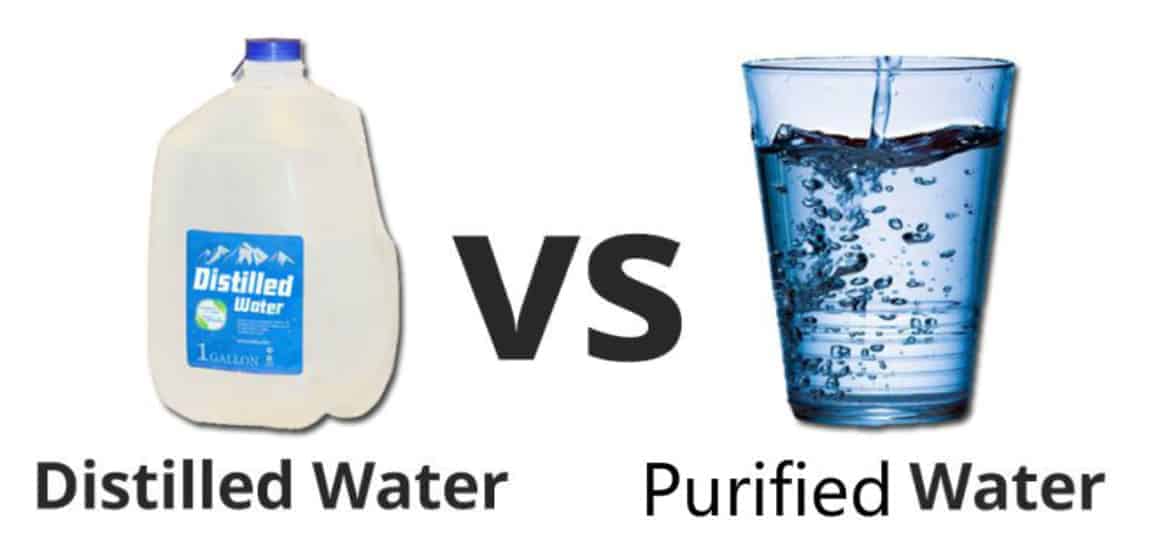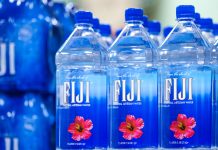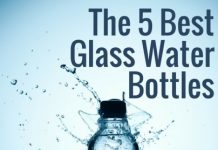Decoding Distilled Water vs Purified Water: Which Is the Superior Hydration Choice?
When it comes to staying hydrated, choosing the right type of water is crucial for your health. The ongoing debate between distilled water and purified water has led to confusion among consumers. In this article, we’ll delve into the nuances of these two types of water, helping you make an informed decision that aligns with your hydration needs.
Understanding Water Purity:
Defining Distilled Water:
Distilled water is created through a process of distillation, where impurities and minerals are removed by boiling water and then condensing the steam back into liquid form. This method is highly effective in eliminating contaminants but also removes essential minerals.
Exploring Purified Water:
Purified water, on the other hand, undergoes various purification processes such as reverse osmosis, filtration, and UV treatment. These methods target impurities while retaining a balanced mineral composition, ensuring safe consumption.

Distilled Water Explained:
The Distillation Process:
Distilled water is created by heating water to its boiling point, causing it to evaporate. The resulting steam is collected and condensed back into water, leaving behind contaminants and minerals. This process effectively eliminates pollutants, making distilled water suitable for various applications.
Pros and Cons:
Distilled water’s purity makes it ideal for medical equipment, irons, and car batteries due to its lack of minerals that could cause buildup. However, the absence of minerals raises concerns about its impact on our health. While distilled water consumption is generally safe, relying solely on it might lead to mineral deficiencies over time.
Purified Water Demystified:
Diverse Purification Techniques:
Purified water goes through different purification processes to remove contaminants while retaining essential minerals. Techniques like reverse osmosis force water through semipermeable membranes, blocking impurities, and ensuring a balanced mineral content. Filtration and UV treatment also play pivotal roles in creating purified water.
Advantages and Drawbacks:
Purified water strikes a balance between purity and mineral content, making it suitable for everyday hydration. It’s free from contaminants that could compromise health, and its mineral composition is generally safe for consumption. However, the exact mineral content can vary based on the purification method employed.
Analyzing Health Implications:
Effects of Consuming Distilled Water:
While distilled water is highly pure, its lack of minerals can raise concerns. Some experts suggest that prolonged consumption might lead to mineral imbalances in the body. However, for most individuals with a balanced diet, occasional consumption of distilled water is unlikely to pose significant health risks.
Health Considerations with Purified Water:
Purified water’s balanced mineral content makes it a safe choice for daily hydration. It addresses concerns about mineral deficiency associated with distilled water. However, some individuals might prefer the slightly enhanced taste of minerals in natural water sources.
Tailoring Your Choice:
Factors like age, dietary habits, and existing health conditions should influence your decision between distilled and purified water. If you’re following a balanced diet rich in essential minerals, drinking both types occasionally is likely safe. Consult a healthcare professional if you have specific health concerns.
Evaluating Purification Techniques:
Comparing Distillation and Purification:
While distillation effectively removes contaminants and minerals, it lacks the balanced mineral composition of purified water. Purification methods like reverse osmosis provide a more balanced alternative, ensuring water safety without compromising essential minerals.
Environmental and Health Considerations:
Distillation and certain purification methods consume energy, impacting the environment. In contrast, newer purification technologies focus on efficiency and reduced energy consumption. When choosing between the two, weigh their environmental impact alongside your health priorities.
Addressing Common Misconceptions:
Over time, misconceptions about distilled and purified water have emerged. Debunk the myths surrounding both types, clarifying their benefits and limitations based on scientific evidence. Accurate information empowers you to make well-informed decisions.
Real-world Applications:
Distilled Water in Practical Settings:
Distilled water finds applications in industries such as healthcare, laboratory work, and electronics. Its purity makes it ideal for medical equipment and procedures where contaminant-free water is crucial. Additionally, it’s commonly used in steam irons and car batteries to prevent mineral buildup.
Purified Water for Everyday Use:
Purified water’s balanced mineral content and removal of contaminants make it suitable for daily hydration and cooking. It’s a versatile choice that caters to general household needs, from drinking to preparing meals.
Considering Taste and Texture:
Distilled water’s lack of minerals might result in a flat taste compared to water with a balanced mineral composition. Some individuals prefer the subtle flavor enhancement that minerals provide in purified water. Taste preferences can play a role in your choice, particularly for everyday consumption.
Balancing Minerals and Hydration:
Minerals’ Role in Health:
Essential minerals like calcium, magnesium, and potassium contribute to various bodily functions. While water is a source of these minerals, their levels in water are relatively low compared to dietary sources. Relying solely on water for mineral intake might not be sufficient.
Combining Water Types:
Achieving a balance between distilled and purified water consumption is a practical approach. Utilize distilled water for specific applications that require its purity, while relying on purified water for your daily hydration needs. A well-rounded diet rich in mineral sources further supports your mineral intake.
Exploring Dietary Alternatives:
To supplement mineral intake, incorporate foods like dairy products, leafy greens, nuts, and seeds into your diet. These natural sources provide essential nutrients that might be lacking in distilled water.
Navigating Consumer Choices:
Reading Labels and Understanding Sources:
When choosing bottled water, carefully read labels to identify whether it’s distilled or purified. Look for water sources mentioned on labels, as this can provide insights into the type of purification process used. Understanding the source gives you a clearer picture of the water’s quality.
Considering Certifications and Standards:
Look for certifications like NSF International or the Water Quality Association (WQA) seal on bottled water products. These certifications indicate that the water has undergone rigorous testing and meets industry standards for safety and quality.
Tailoring Choices to Your Needs:
Your choice between distilled and purified water should align with your lifestyle and preferences. If you’re focused on optimal purity, distilled water might suit specific applications. For balanced daily hydration, purified water is a reliable choice.
Sustainability and Environmental Considerations:
The Environmental Impact of Water Purification:
Traditional distillation and certain purification methods can consume significant amounts of energy. This consumption contributes to carbon emissions and environmental strain. Consider alternatives like newer, energy-efficient purification technologies to reduce your ecological footprint.
Embracing Eco-Friendly Practices:
Opt for reusable water containers to minimize plastic waste. If you have access to a reliable source of clean tap water, consider investing in home water filtration systems that reduce the need for bottled water. Sustainable choices benefit both the planet and your well-being.
Harmonizing Health and Ecology:
Striking a balance between health and environmental considerations is essential. Opt for purification methods that safeguard your health while also minimizing negative environmental impacts. Conscious choices contribute to your well-being and the preservation of our natural resources.
Frequently Asked Questions (FAQs)
Is distilled water safe to drink regularly?
Yes, distilled water is safe for occasional consumption. However, relying solely on it might lead to a lack of essential minerals over time.
Does purified water contain any minerals?
Yes, purified water retains a balanced mineral composition, making it suitable for everyday hydration. Different purification methods ensure safe consumption with minerals intact.
Can I use distilled water in my coffee machine?
While distilled water’s purity might prevent mineral buildup, using it exclusively might not be necessary. Filtered or tap water can also work well in coffee machines.
Does purified water taste different from distilled water?
Yes, some people might notice a subtle difference in taste. Purified water’s balanced mineral content can contribute to a slightly enhanced flavor compared to distilled water.
Is distilled water better for medical equipment?
Yes, distilled water’s purity makes it ideal for medical equipment, where contaminant-free water is crucial for accurate results and preventing damage.
Can purified water replace minerals from my diet?
While purified water contributes to mineral intake, it’s not a primary source. Maintain a balanced diet with mineral-rich foods to ensure adequate nutrient intake.
Is bottled purified water better than tap water?
Both tap water and bottled purified water can be safe for consumption. Check local water quality and consider using a home filtration system if needed.
Are there environmental benefits to choosing purified water?
Some purification methods consume less energy and have a lower environmental impact compared to traditional distillation. Choose eco-friendly purification options when possible.
Can I use purified water in my aquarium?
Purified water can be suitable for aquarium use, especially if your tap water has high mineral content. However, ensure that the water is safe for aquatic life.
Should I consult a doctor before switching water types?
If you have specific health concerns or dietary restrictions, consulting a healthcare professional is advisable. They can provide personalized guidance based on your needs.
Conclusion:
As we conclude our exploration of distilled water vs purified water, remember that your hydration choice should be a holistic one. Understanding the differences between these two water types empowers you to make decisions that align with your health goals, environmental values, and lifestyle preferences.
Ultimately, there’s no one-size-fits-all answer. Balancing the benefits of purity and mineral content with the realities of sustainability and taste preferences is a nuanced endeavor. By considering various factors and embracing an informed approach, you can confidently select the water that suits your unique needs.




